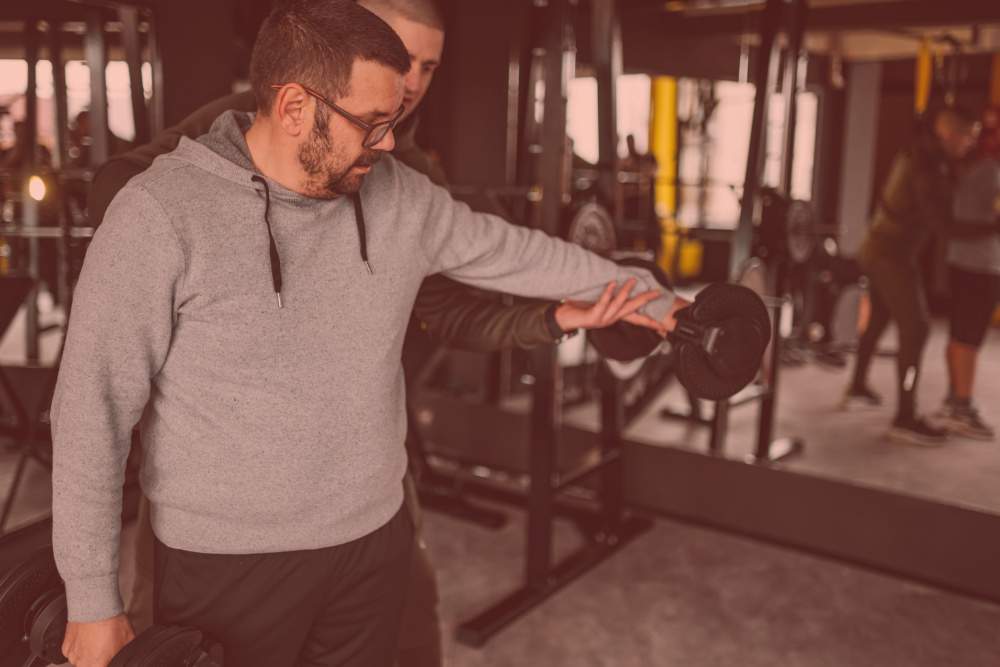Finding the right special needs personal trainer in Melbourne can feel overwhelming, but the right professional can make exercise safer, more enjoyable, and genuinely life-improving for people with disabilities and specific health conditions.
What is a Special Needs Personal Trainer?
A special needs personal trainer is a fitness professional who designs safe, individualized exercise programs for clients with conditions such as autism, cerebral palsy, Down syndrome, ADHD, and physical disabilities, adapting movements, instructions, and environments to each person’s needs.
In Melbourne, these trainers work across gyms, homes, and community settings, understanding how different conditions affect movement while modifying equipment and routines to align with the client’s abilities and goals.
How Much Does It Cost in Melbourne?
Expect to pay between $80 and $150 per session in Melbourne, with most sessions running 30–60 minutes depending on goals, location, and trainer expertise.
Typical Pricing
- One-on-one sessions: $80–$120 per hour
- Small group sessions: $35–$60 per person per hour
- NDIS-funded sessions: Often billed within plan, commonly $80–$100 per hour
- Packages: $400–$500 for 5 sessions
Mobile trainers who travel to your home generally charge $10–$20 more per session for time and distance, while multi-session packages can reduce the per-session cost.
9 Steps To Shed 5-10kg In 6 Weeks
Includes an exercise plan, nutrition plan, and 20+ tips and tricks.
Download FreeWhat Qualifications Matter?
At minimum, your trainer should hold Certificate III or IV in Fitness from a registered Australian training organisation, plus current First Aid and CPR certification.
Trainer Credentials
- Certificate III/IV in Fitness (minimum requirement)
- First Aid and CPR (kept current)
- NDIS Worker Screening Check for funded clients
- Experience with your specific condition
- Professional indemnity and public liability insurance
For added assurance, look for trainers affiliated with AUSactive (formerly Fitness Australia) or Physical Activity Australia, and those experienced collaborating with OTs, physios, and speech pathologists.
Using NDIS for Personal Training
Yes, NDIS funding can pay for special needs personal training when it’s linked to goals in your plan, typically under Capacity Building supports such as Improved Health and Wellbeing.
Your plan should include exercise or personal training goals, and it’s best to work with a registered NDIS provider who documents how sessions build skills, independence, or participation.
What Do These Trainers Do Differently?
They simplify instructions, break movements into smaller steps, and use demonstrations, visuals, and plain language to support learning and safety.
They also adjust environments and equipment, create predictable routines, and celebrate small wins to boost confidence while managing sensory needs.
Key Focus Areas
- Balance, coordination, and foundational movement skills
- Predictable, routine-based sessions to reduce anxiety
- Sensory-aware programming and environment adjustments
- Adaptive equipment and graded progressions
- Confidence-building through achievable milestones
How to Find Trainers in Melbourne
Start with your support coordinator, GP, occupational therapist, or physiotherapist for recommendations, then explore provider directories and local community networks.
Where to Look
- AUSactive/Fitness Australia professional directories
- NDIS provider lists under exercise services
- Local disability support groups and community centres
- Special needs sports clubs and inclusive programs
- Call nearby gyms to ask about disability experience
Suburbs like Elwood, St Kilda, and Port Melbourne have trainers serving special needs clients; always ask about condition-specific experience before booking.
Questions to Ask Before Hiring
Book a discovery call or trial session to check alignment, communication style, and safety practices before committing to a package.
Pre‑Hire Checklist
- Experience with your condition and age group
- Current qualifications, checks, and insurance
- NDIS registration and reporting capability
- Session locations, structure, and adaptations
- Approach to behaviours and sensory challenges
- Progress tracking, reviews, and cancellations
- Willingness to liaise with your allied health team
Expected Results and Timelines
With consistent training, many clients notice better strength, balance, and daily confidence within 8–12 weeks, with sleep and anxiety improvements often emerging earlier.
Common Improvements
- Strength and stamina for daily tasks
- Balance, coordination, and safer movement
- Confidence and self-efficacy in physical activity
- Better sleep and energy management
- Lower anxiety and improved emotional regulation
- Greater independence and participation
Aim for a review every 4–6 weeks to measure progress and adjust the plan; expect visible change after 8–12 weeks of consistent sessions.
How Often Should You Train?
Most people benefit from 2–3 sessions per week, balancing skill acquisition, recovery, and consistency; some start with one weekly session and add more as capacity grows.
Your schedule should reflect current fitness, health conditions, budget or NDIS plan, other therapies, and energy levels.
Nutrition Support: Do You Need It?
Exercise improves fitness, but diet shapes health outcomes; trainers can offer general guidance, while detailed plans should come from qualified nutrition professionals.
Who to See
- Dietitian: Medical nutrition therapy and clinical needs
- Sports nutritionist: Performance and body composition
- Nutritionist: General healthy eating and habits
In suburbs like Elwood, practitioners frequently support clients with disabilities on weight management, food sensitivities, and energy balance, with some dietetic services eligible under NDIS plan items.
Frequently Asked Questions
Can trainers work with wheelchair users?
Yes, qualified trainers adapt programs to emphasize upper-body strength, core stability, transfers, cardio options, and daily-function goals with appropriate safety progressions.
What if my autistic child dislikes new people?
Good trainers introduce change gradually, keep routines predictable, and allow trust to form over several sessions, often offering a free or low-cost trial to build comfort.
Do I need medical clearance?
Obtain GP clearance before starting, especially if you have cardiac, seizure, metabolic, or complex medical histories, and share relevant reports with your trainer.
Do trainers come to my home?
Many Melbourne trainers offer mobile services with portable equipment, ideal for clients who prefer familiar environments or find commercial gyms overwhelming.
What if I don’t have NDIS funding?
Private-pay options, payment plans, and community health programs can bridge access, while some centres offer low-cost inclusive fitness classes.
How long are sessions?
Standard sessions run 45–60 minutes, with 30-minute options suited to fatigue, focus, or scheduling needs, especially in early stages of training.
Finding the Right Fit in Melbourne
Shortlist 2–3 trainers, verify qualifications and NDIS suitability, try a trial session, and choose the professional who communicates clearly, adapts well, and feels safe and supportive.
Commit to at least 8–12 weeks for meaningful change; expect your trainer to track progress, coordinate with allied health where relevant, and refine the plan as you improve.
Whether you’re in Elwood, the CBD, or outer suburbs, the right special needs personal trainer can transform exercise into a positive, confidence-building part of everyday life.

